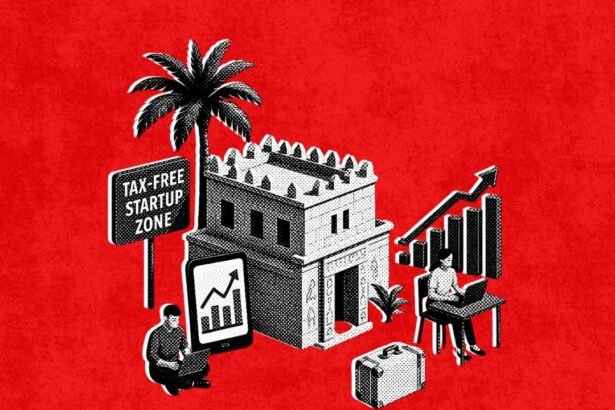A Bold Move to Compete Globally
In a strategic move to combat currency pressures and prevent startup migration, Egypt is introducing tax-free startup zones to retain homegrown tech talent and attract regional investment. These zones are designed to remove the typical roadblocks that often push promising entrepreneurs abroad, like red tape, high taxes, and complex import-export procedures.
With the backing of the General Authority for Investment and Free Zones (GAFI), the initiative aims to transform Egypt into a regional tech hub, modeled after successful ecosystems in the UAE, Bahrain, and Morocco.
What’s on Offer?
Egypt’s new tax-free zones are about more than just eliminating taxes. Startups, especially those in AI, fintech, and software exports, will now benefit from:
- ✅ Full tax and customs exemptions
- ✅ Simplified business registration
- ✅ Fast-track licensing
- ✅ Access to legal, marketing, and consulting services
- ✅ An express online platform for company registration in under 2 hours
These zones currently cover over 9,000 square meters and are fully equipped to support growth, scale, and international expansion.
Hossam Heiba, CEO of GAFI, emphasized,
“We’re committed to speeding up document processing and providing global access for our startups. We’re also working with partners like the EU, Saudi Arabia, and Morocco to avoid double taxation and support cross-border growth.”
A Growing Startup Scene
Despite ongoing economic challenges, Egyptian startups are still pushing forward. In Q1 2025 alone, they raised $61 million, a 15.1% jump from last year. Key sectors driving this growth include:
- Logistics
- E-commerce
- Fintech
The government hopes that by making it easier and more affordable to build in Egypt, even more entrepreneurs will choose to launch and scale locally, rather than relocating to Dubai or Riyadh.
Expert insights reveal more than just tax breaks
While the perks are impressive, experts caution that tax incentives alone aren’t enough to keep startups grounded.
Dr. Heba Medhat Zaki, Director of the Egypt Center for Entrepreneurship and Innovation, explained:
“We must go beyond tax cuts, mentorship, venture capital, and ecosystem support are all essential to long-term growth.”
Rafiq Dalal, co-founder of Intercap Capital, added:
“Startups need holistic support, ease of doing business, investor access, and regulatory clarity.”
Economic analyst Ahmed Khattab also noted that reduced import-export costs will play a key role in improving global competitiveness for Egyptian startups.
What’s Next?
GAFI isn’t stopping here. A new law is in the pipeline to create even more “financial and business zones” designed to attract venture capital funds and deepen Egypt’s position in the MENA startup scene.
However, the real test lies ahead: Will Egypt’s startups embrace this opportunity and grow at home? Or will talent still flow elsewhere in search of smoother paths to success?




